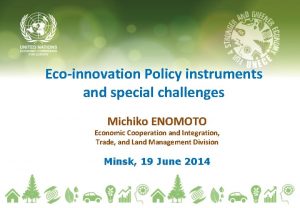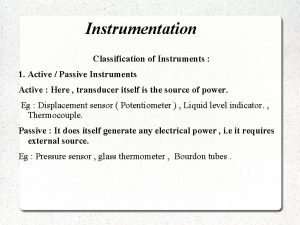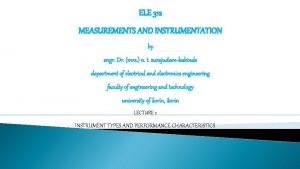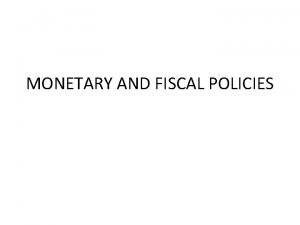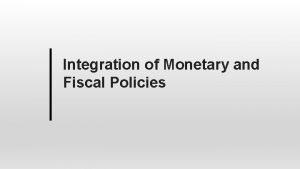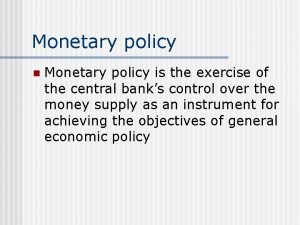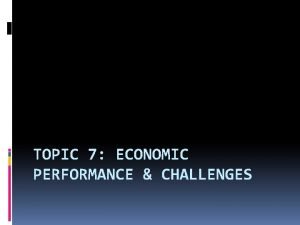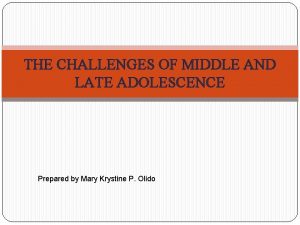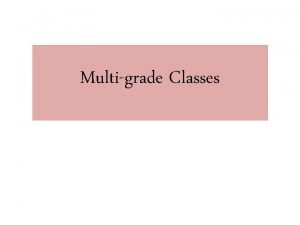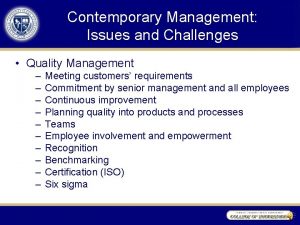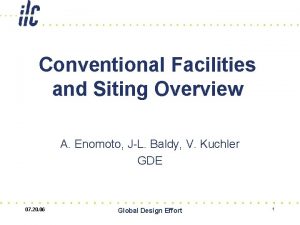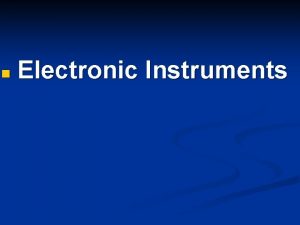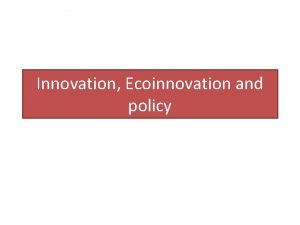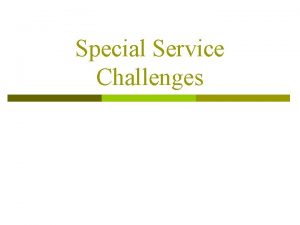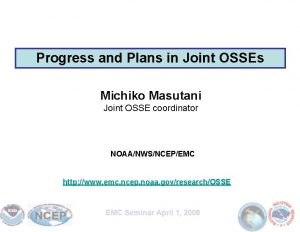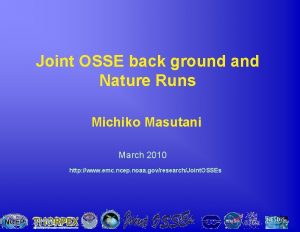Ecoinnovation Policy instruments and special challenges Michiko ENOMOTO














- Slides: 14

Eco-innovation Policy instruments and special challenges Michiko ENOMOTO Economic Cooperation and Integration, Trade, and Land Management Division Minsk, 19 June 2014

Eco-innovation Policy Subset of national innovation policy Need to build strong National Innovation System and good innovation governance Best designed eco-innovation policies may fail if the framework conditions are not right. Need for good framework conditions.

Framework conditions include: • Comprehensive and effective commercial and financial laws (including IPR) • Structure of product and financial markets • Openness to international trade and foreign direct investment • Availability and quality of human capital • Availability of physical infrastructure

Drivers of innovation Entrepreneurship • Important driver of innovation • Social acceptance of entrepreneurial successes and failures are essential • Need to foster innovative SMEs Competition • Innovation thrives best in competitive markets • Openness to trade and FDI can enhance innovation

Innovation policy & environmental policy How to bridge the divide between Innovation policy and environmental policy? Eco-innovation policy – should coordinate environmental and innovation measures for the aim of improving both innovation performance and sustainability.

Eco-innovation Policy instruments There are numbers of policy instruments that enhance both innovation performance and sustainability: • • • Market based instruments Regulatory and normative framework Direct support for eco-innovation activities Public procurement Strategic planning Capacity-building

Market based instruments Fiscal measures • Energy tax • resource tax • carbon emission tax • R & D tax incentives Emission trading schemes • Fiscal policy • Trade Policy

Regulatory and Normative Framework • Energy regulation standards and norms (including technology regulations, energy saving requirements) • Permits and bans • Land use regulations • Environmental management systems • Eco-labels and other soft standardization instruments • Environmental policy • Industrial policy • Energy policy • Trade policy • Local development policy

Direct support for ecoinnovation activity • Financial schemes (loans and credits) • Subsidies (renewable energy subsidies) • Venture capital funds • Business incubation programmes • Targeted R & D and technology transfer • Business advisory services • Eco-clusters Economic policy Energy policy Innovation policy Entrepreneurship policy Science and technology policy • Regional development policy • • •

Capacity-building • Education for sustainable development • Capacity-building for ecoefficiency for enterprises • Changes in school educational programmes • Eco-labelling • Education and training policy • Consumer policy

Public procurement • Green public procurement • All policy fields with public procurement capacity (i. e. transport, construction, housing)

Special challenges related to financing of eco-innovation • Life-cycle assessments - increases uncertainty & difficulties of estimating the cost of eco-innovation • Scale - some projects, especially in renewable energy, are small – high transaction costs • Venture capital financing - often provides only a partial solutions, especially in life-cycle projects • Public support - critical to address financing gaps • Financing eco-innovation requires the combination of public and private efforts

Conclusion • Need for integrated policymaking • Resultant synergies enhance the effectiveness of individual policy instruments • Need for coordination across many different areas, and actors over a sustained period of time • Crucial role of the public sector defining the regulatory and policy framework, as well as designing and funding of ecoinnovation

Thank you! ありがとう Michiko ENOMOTO (UNECE) Michiko. Enomoto@unece. org
 Michiko enomoto
Michiko enomoto Active instruments examples
Active instruments examples Indicating instruments and instruments with a signal output
Indicating instruments and instruments with a signal output Patients with special challenges
Patients with special challenges Career path example
Career path example Instruments of fiscal policy
Instruments of fiscal policy Fiscal policy
Fiscal policy Instruments of fiscal policy
Instruments of fiscal policy Instruments of monetary policy
Instruments of monetary policy Instruments of monetary policy
Instruments of monetary policy Informational aspect opportunities and challenges
Informational aspect opportunities and challenges Topic 7 economic performance and challenges
Topic 7 economic performance and challenges The challenges of middle and late adolescence
The challenges of middle and late adolescence What is multigrade
What is multigrade Contemporary management issues and challenges
Contemporary management issues and challenges
